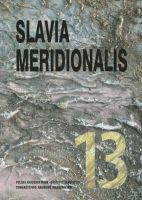Składnia derywatów w tekście: kompozycja i dekompozycja struktur złożonych oryginału w kontekście doboru odpowiedników w przekładzie
The syntax of compound words in texts: Composition and decomposition of compound words in view of the selection of their equivalents
Author(s): Alicja PstygaSubject(s): Language and Literature Studies
Published by: Instytut Slawistyki Polskiej Akademii Nauk
Keywords: compound words; structure; interpretation; translation
Summary/Abstract: The starting point for the analysis is the broad interpretation of syntax proposed by Stanisław Karolak. We should take into consideration his findings, concerning combinatory rules and complicated relationships in compound words. The decomposition of these words – even violating the rules of concept co-occurrence – allows us to uncover their proper semantic interpretation. Karolak claims that in Slavic languages, the rules of word formation enable simple expressions to function in utterances which are more complicated than simple sentences. The aim of this paper is to present the functioning of compound words in Russian press articles from the translation perspective. One of the most interesting examples is the Russian compound word евронадежды (with its Polish equivalent europazerni), used in a text about problems with accommodation during the 2012 UEFA European Football Championship in Ukraine
Journal: Slavia Meridionalis
- Issue Year: 2013
- Issue No: 13
- Page Range: 171-184
- Page Count: 14
- Language: Polish

